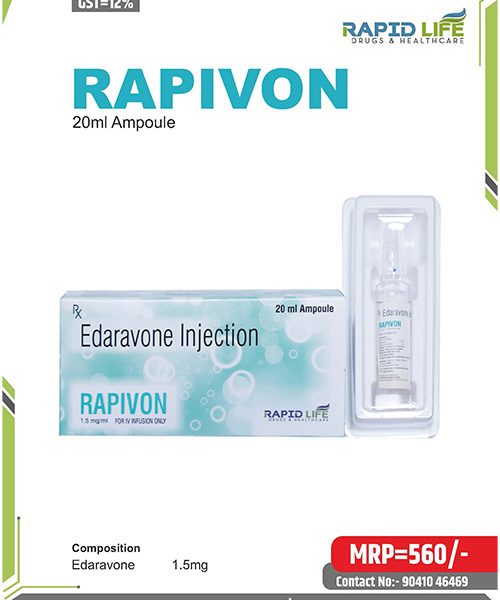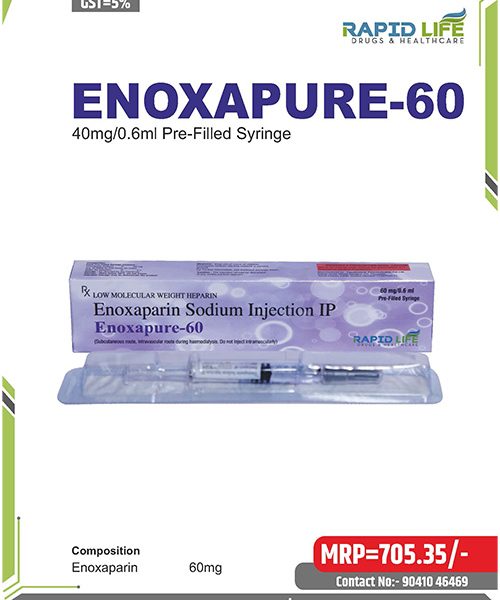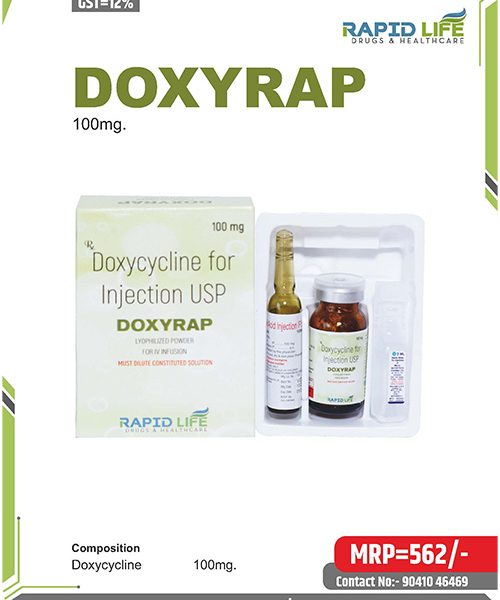Description
Composition:
Each 2 ml ampoule contains:
-
Ranitidine Hydrochloride equivalent to Ranitidine 200 mg
Therapeutic Class: H2-Receptor Antagonist
(Indicated for the treatment and prevention of ulcers, gastroesophageal reflux disease (GERD), and conditions involving excess stomach acid)
Ranitidine Injection is a medicine that is used to treat and prevent ulcers in the intestines & stomach. It acts by lowering the amount of acid that is secreted by the stomach. The injection comes in a liquid form and is injected intravenously.
How To Use Ranitidine Injection?
- The dose is being treated and will depend on the age and weight of the patient.
- Always follow the dose of Ranitidine Injection prescribed by a healthcare provider.
- Typically, 25 mg can be administered intravenously of Ranitidine Injection every 6 to 8 hours.
- Ranitidine injection is usually administered by a healthcare professional.
- It can be given as a slow intravenous (iv) injection or diluted in an IV solution and infected in a specific period.
Benefits Of Ranitidine Injection
Ranitidine Injection is an injection that assists in stomach and digestive issues. This injection has some benefits, including:
- It lowers the level of acid in the stomach, which can help make symptoms of acid reflux, heartburn, and other stomach issues feel better.
- It may assist in treating sores in the stomach and intestines, which may reduce pain and discomfort.
- It is liquid, which is easier to use and more effective for patients with difficulty swallowing tablets.
- It is easy to use for most individuals, and there are few ill effects if a doctor instructs on how to take it.
- It can be used to treat either short-term or long-term illnesses, depending on the needs of the patient.
Side Effects Of Ranitidine Injection
- Headache
- Dizziness
- Diarrhea
- Nausea or vomiting
- Pain or discomfort in the stomach
- Constipation
- Appetite changes
- Muscle weakness or pain
Precautions of Ranitidine Injection
- Inform your doctor if you are pregnant, breastfeeding, or intend to become pregnant, as this injection may not be safe for you while becoming pregnant or when breastfeeding.
- Inform your doctor if you have had previous liver disease because this drug may influence the functioning of your liver.
- Inform your physician if you are on any other medications since Ranitidine Injection may interact with certain drugs such as blood thinners and anti-seizure medications.
- Ensure you adhere to the instructions provided by your physician or pharmacist on the quantity of medicine to use. Don’t exceed the given dose.
- If you experience any issues such as severe stomach pain, difficulty breathing, or allergic reactions, be sure to call your doctor immediately.
- Do not take this medicine if a doctor has not told you that you have certain symptoms.
- Inform your doctor if you have had kidney problems previously, since this medicine may require administration in a different dosage.










